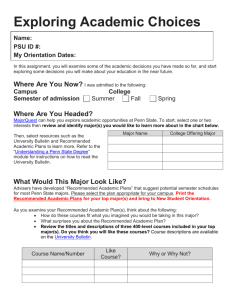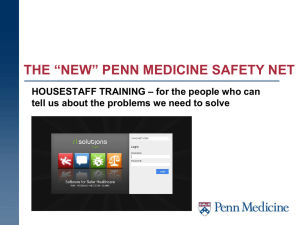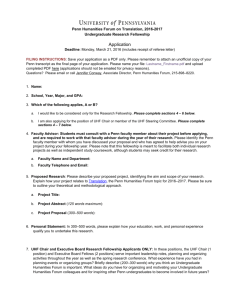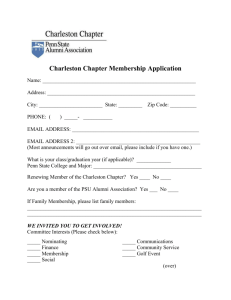Guidelines for Young Alumni Panelists
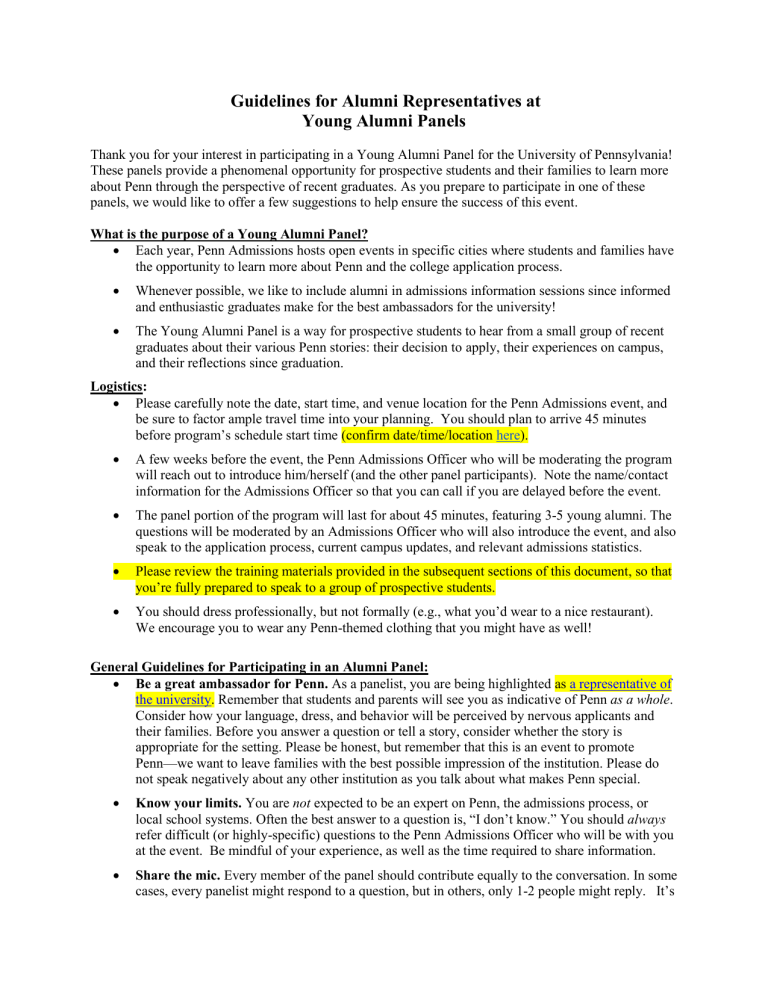
Guidelines for Alumni Representatives at
Young Alumni Panels
Thank you for your interest in participating in a Young Alumni Panel for the University of Pennsylvania!
These panels provide a phenomenal opportunity for prospective students and their families to learn more about Penn through the perspective of recent graduates. As you prepare to participate in one of these panels, we would like to offer a few suggestions to help ensure the success of this event.
What is the purpose of a Young Alumni Panel?
Each year, Penn Admissions hosts open events in specific cities where students and families have the opportunity to learn more about Penn and the college application process.
Whenever possible, we like to include alumni in admissions information sessions since informed and enthusiastic graduates make for the best ambassadors for the university!
The Young Alumni Panel is a way for prospective students to hear from a small group of recent graduates about their various Penn stories: their decision to apply, their experiences on campus, and their reflections since graduation.
Logistics:
Please carefully note the date, start time, and venue location for the Penn Admissions event, and be sure to factor ample travel time into your planning. You should plan to arrive 45 minutes before program’s schedule start time (confirm date/time/location here ).
A few weeks before the event, the Penn Admissions Officer who will be moderating the program will reach out to introduce him/herself (and the other panel participants). Note the name/contact information for the Admissions Officer so that you can call if you are delayed before the event.
The panel portion of the program will last for about 45 minutes, featuring 3-5 young alumni. The questions will be moderated by an Admissions Officer who will also introduce the event, and also speak to the application process, current campus updates, and relevant admissions statistics.
Please review the training materials provided in the subsequent sections of this document, so that you’re fully prepared to speak to a group of prospective students.
You should dress professionally, but not formally (e.g., what you’d wear to a nice restaurant).
We encourage you to wear any Penn-themed clothing that you might have as well!
General Guidelines for Participating in an Alumni Panel:
Be a great ambassador for Penn.
As a panelist, you are being highlighted as a representative of the university . Remember that students and parents will see you as indicative of Penn as a whole .
Consider how your language, dress, and behavior will be perceived by nervous applicants and their families. Before you answer a question or tell a story, consider whether the story is appropriate for the setting. Please be honest, but remember that this is an event to promote
Penn—we want to leave families with the best possible impression of the institution. Please do not speak negatively about any other institution as you talk about what makes Penn special.
Know your limits. You are not expected to be an expert on Penn, the admissions process, or local school systems. Often the best answer to a question is, “I don’t know.” You should always refer difficult (or highly-specific) questions to the Penn Admissions Officer who will be with you at the event. Be mindful of your experience, as well as the time required to share information.
Share the mic.
Every member of the panel should contribute equally to the conversation. In some cases, every panelist might respond to a question, but in others, only 1-2 people might reply. It’s
great to tell a short story that illustrates a concept, but please make sure to honor and respect the moderator as well as the other panelists. Time will be tight, so while we want all perspectives heard, we will allow some time at the end of the program for less formal Q&A with students.
Check in with the Admissions Officer.
It is always okay to direct a question to the moderator
(e.g., “Do we have time for a brief example?” or “Is it all right if I add something to what she just said?”). The moderator is there to keep the program running smoothly and on time, and you will help them to do so by checking in occasionally.
What kinds of questions might I be asked?
Introductory
Relevant details from your Penn experience, including: hometown, grad year, school, major(s), clubs and activities.
What did you know about Penn before you applied? Did you apply EDP or RDP? Why Penn?
Academics
Did you know what you wanted to study/focus on academically?
Talk about a favorite class/professor/academic experience.
Why do you think studying liberal arts/business/nursing/engineering at Penn was unique?
What kind of flexibility did you find in the academic options at Penn ?
What was the student/professor interaction like?
Are there research opportunities for undergraduates?
As a Penn student, can I take a gap/service year off or study abroad ?
Community/social life
How did Penn’s location and resources affect your college experience?
Activities and social life—who did you meet? What did you learn outside of the classroom?
How did your involvement in these activities help you in your post-college paths?
What is something at Penn that you absolutely loved being a part of?
Closing Questions
Name one thing you wish you would have done at Penn, but didn’t have time for.
What are you most proud of from your Penn experience?
How has your Penn education impact what you’re doing now (career, activities, friends, etc.)?
Tough Questions (and a bit of advice)
What is something you didn’t like about your Penn experience?
o This is like being asked about a challenge in a job interview. Please try to select something that can be portrayed as a learning experience or have a positive side to it.
Did you feel safe at Penn?
o Penn has incredible campus security, the specifics of which the Admissions Officer is happy to address. This is also a good time to mention that anywhere one goes, safety is a personal/shared responsibility.
Did you feel Penn students were competitive? o Penn tries to encourage a collaborative environment that does not leave students fighting for a top grade or trying to disadvantage a peer. This would be a great opportunity to talk about a group project you did at Penn.
